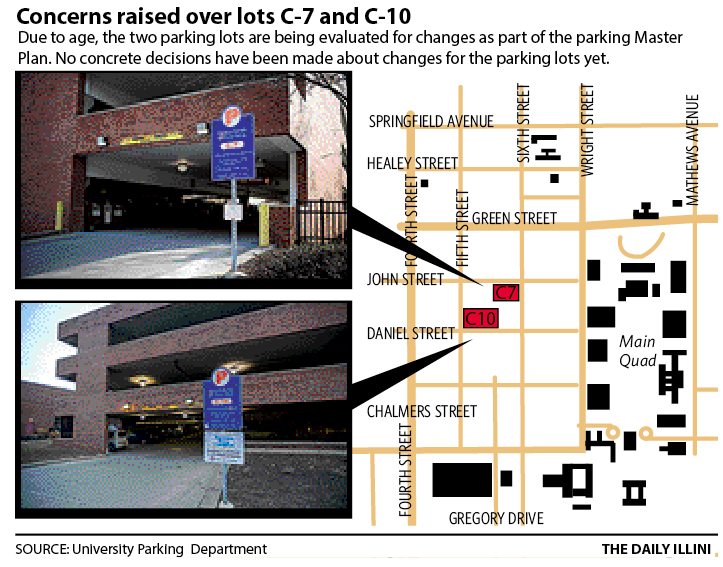Parking department launches Master Plan
February 16, 2015
Parking on campus can be a hassle, which is something the University’s Parking Department is taking into consideration while developing its new Master Plan for parking developments on campus for the next 10 years.
The department kicked off ideas for the plan at a Jan. 22 meeting.
Michelle Wahl, director of Parking, said currently, with 147 parking facilities and five structures, there are approximately 16,000 parking spaces available at the University. There are approximately 1,600 students and approximately 9,000 faculty members with parking permits, she said, and these numbers give the Parking Department an idea of what it is working with.
Brian Farber, executive assistant to the associate vice chancellor for Student Affairs and director of Auxiliary Services, said the Master Plan provides a strategic direction for 10-year periods of time.
The Parking Department’s last Master Plan was introduced in 2001. Once it expired, Wahl said the department needed to update what they were doing in terms of parking, make sure they had correct information, tools and resources.
Get The Daily Illini in your inbox!
Concerns on C-7 and C-10 lots
Being over 40 years old, parking lots C-7 and C-10, located respectively on the corner of Sixth and John streets and Fifth and Daniel streets, have become a concern to the department. Once a year, the two structures undergo preventative maintenance, called evasive testing.
Wahl said after the study was conducted, the department received a report and had some structural concerns. They then requested another report for an investigation in 2012.
“We found that C-7 and C-10 are coming close to the end of their life,” Wahl said. “It was time for us to take a look at them, digest the report thoroughly and understand that we needed to start this process sooner to, hopefully, if possible, recover those parking spaces in my inventory.”
Farber said lots C-7 and C-10 are a major concern that will be addressed, though no decisions have been made yet and will be discussed with the Master Plan.
“We’ll need to be thinking about what the short-term and long-term solutions will be for both the permit holders and users of those facilities and also what new options and alternatives will be available to us,” Farber said.
He added that the department is asking consultants to take those factors into consideration as they work with the lots.
Robert Olshansky, head of the department of urban and regional planning, said the purpose of the Master Plan is to provide access to the overall campus community.
“You want to provide longer-term parking,” Olshansky said. “You want to have opportunities for short term parking that are closer in to the center and the pricing you need to figure out.”
He said often when people discuss transportation planning, they lose sight of those larger purposes. What is most important, he said, is access and accessibility.
Request for proposal process and funding
The Parking Department will collaborate with Walker Parking Consultants on the Master Plan. Wahl said the department selected the consulting firm eight months ago and recently signed the contract.
“We went through an RFP (request for proposal) process, selected a consultant based on their experiences, being at multiple institutions, their parking experience, and assisting people like myself, as the director of the department, to come up with great solutions to have a better parking experience,” Wahl said.
Farber hopes working with external consultants will bring different perspectives to the plan.
As of now, the funding for the new Master Plan is still in consideration, but both Farber and Wahl said it is possible the price of parking may increase.
“We’ll need to have an understanding of what the expenses will be and then how those expenses will be recouped,” Farber said. “You can’t use state funding to support parking structures or parking facilities or parking operations. All of that money will have to come from other funding sources.”
Farber also said the department is not trying to prejudge what solutions they will come up with through the Master Planning process.
“It’s difficult to know what sorts of budget implications or costs or savings will be associated with that because we haven’t even begun to think about those solutions,” he said. “We’re trying to look at this with as much of a blank slate as possible.”
However, both Farber and Wahl said it is possible the price of parking will increase due to the expenses related to the Master Plan.
Jane can be reached at [email protected].







